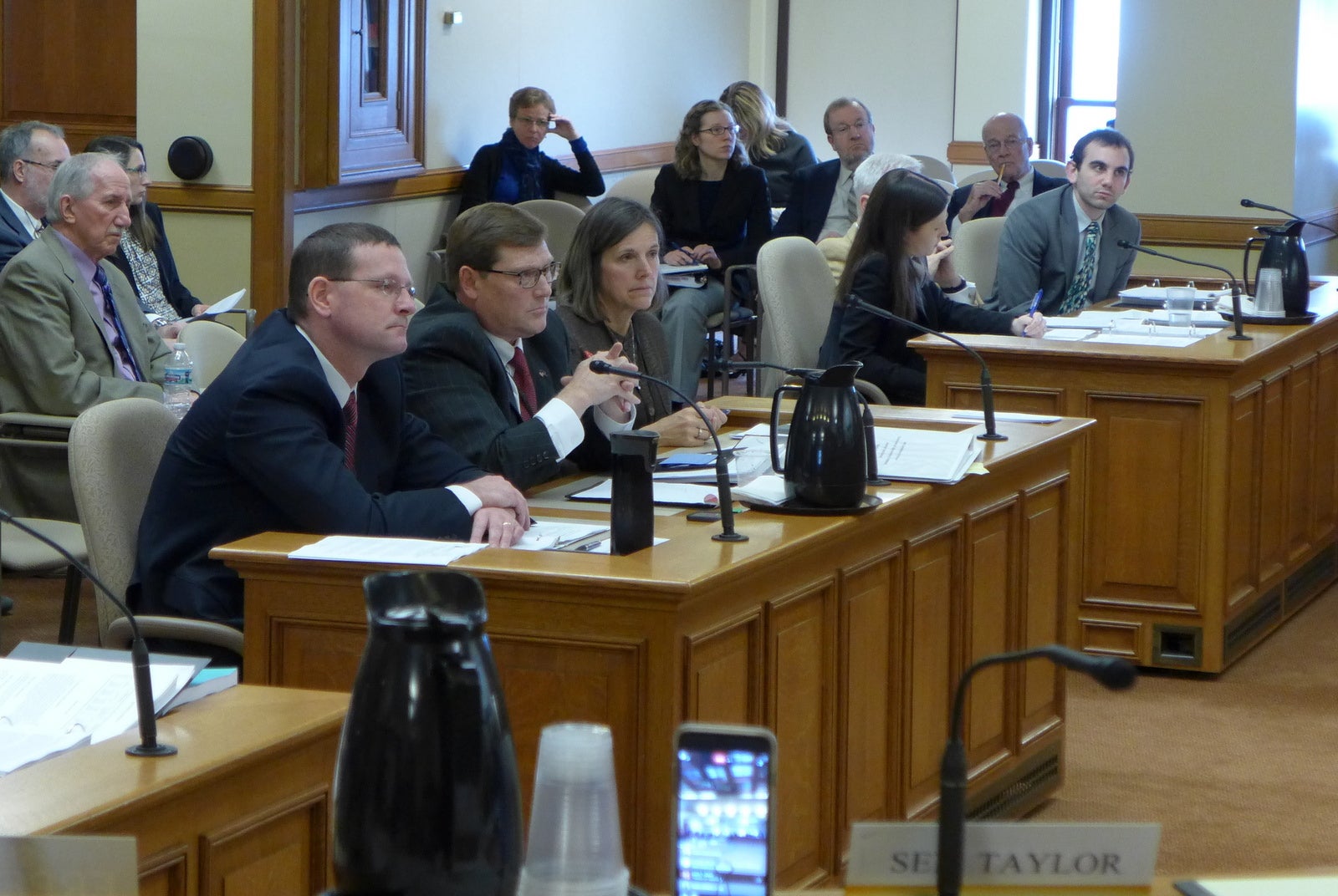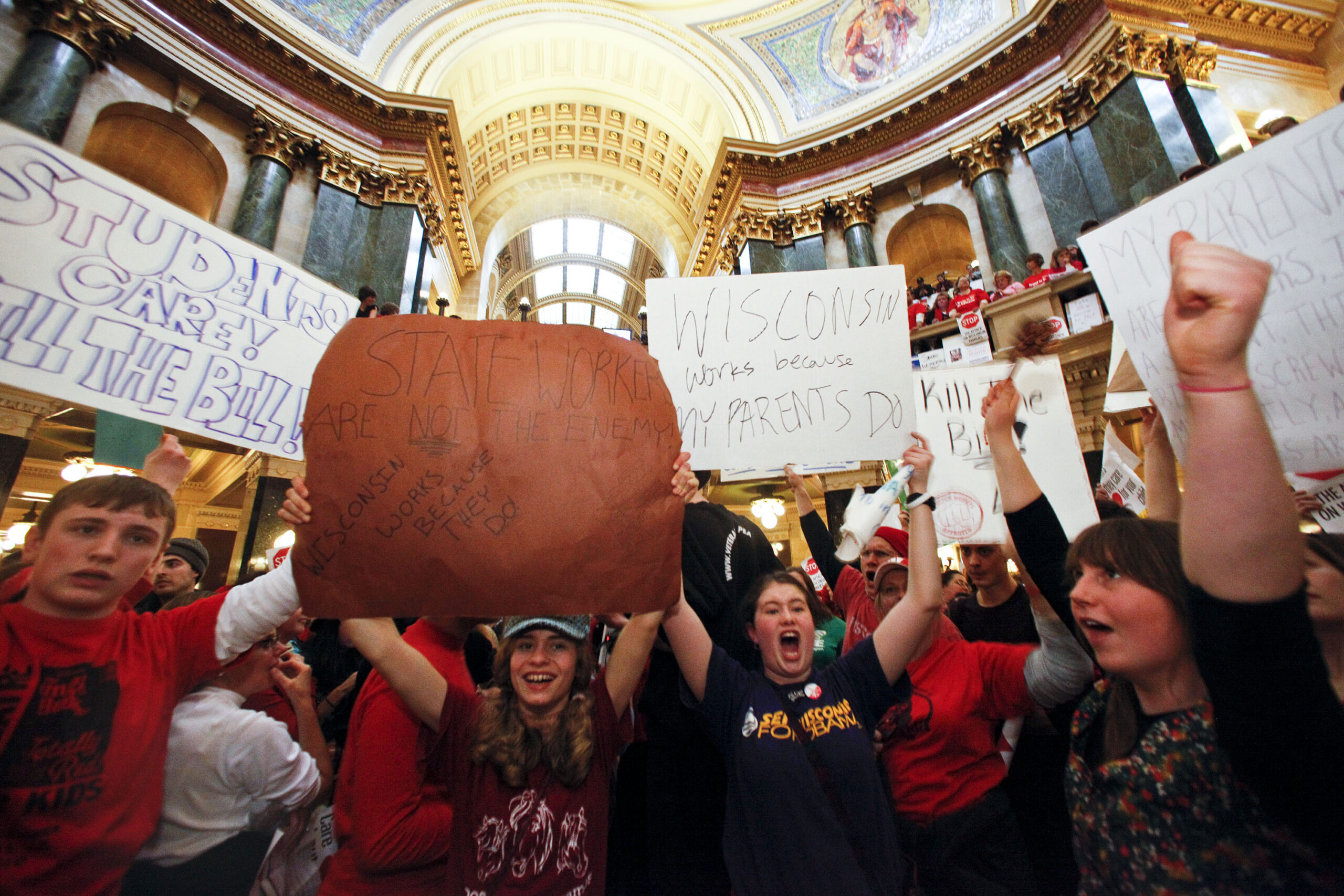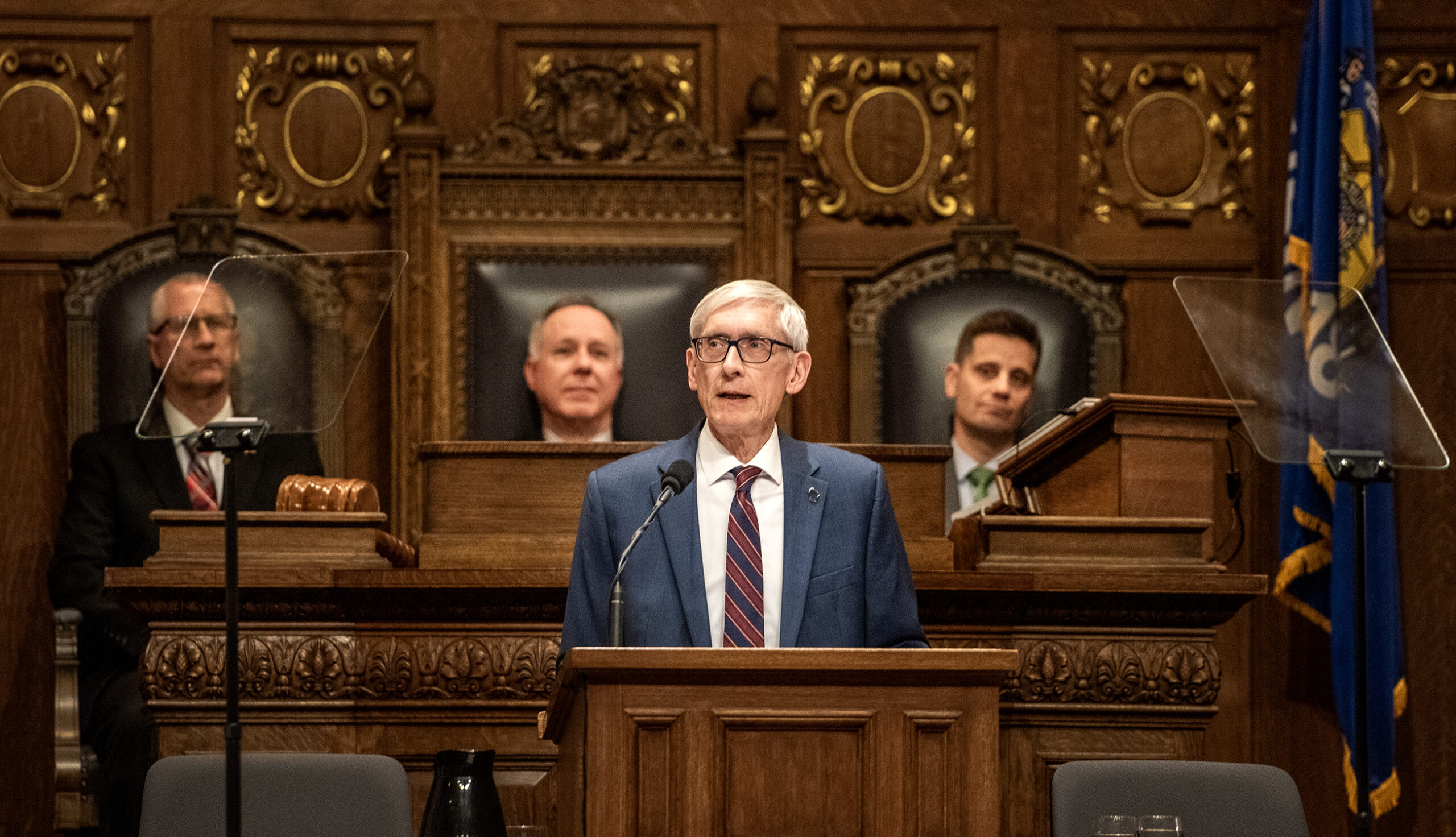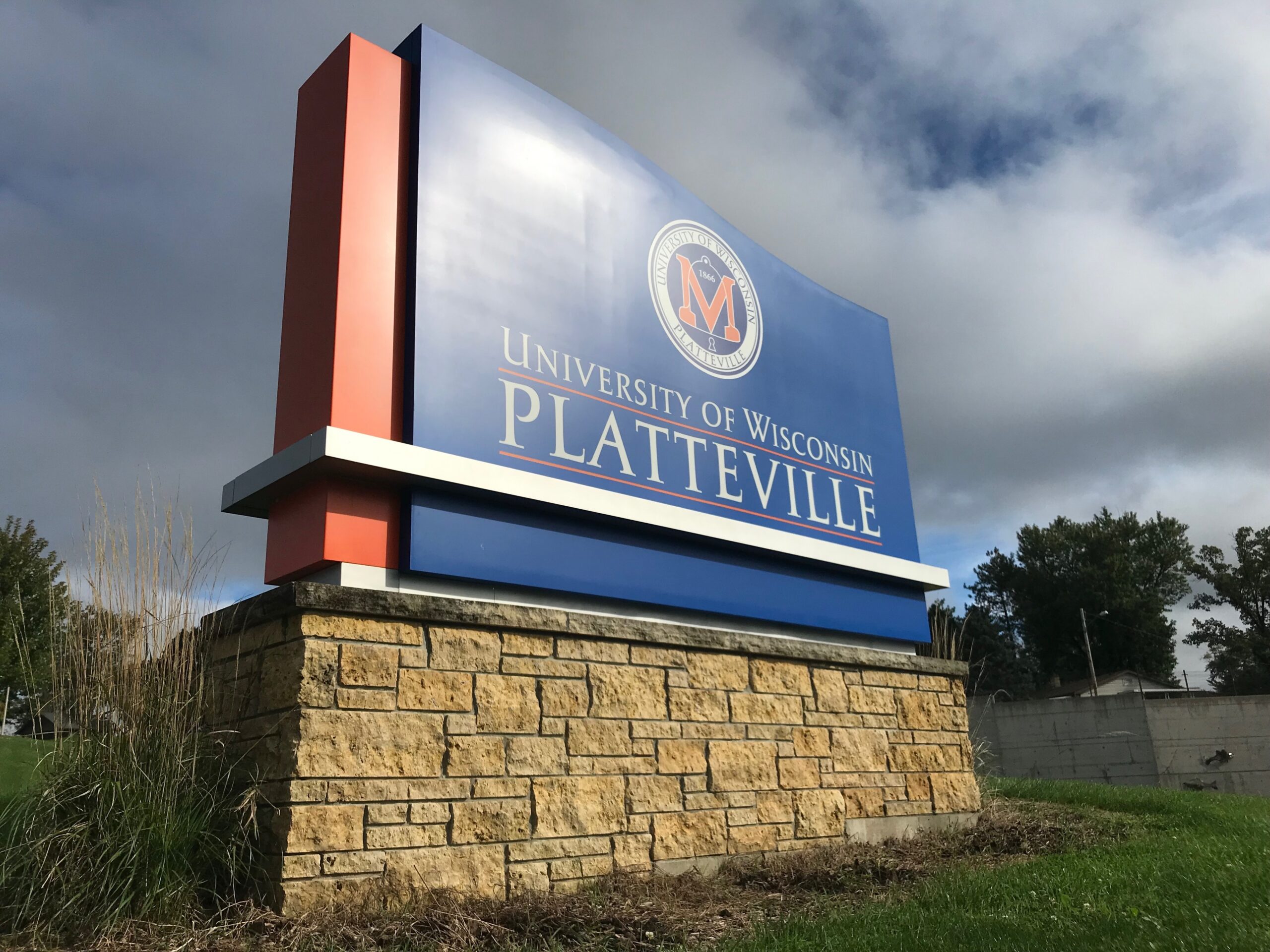State lawmakers pressed Gov. Scott Walker’s top aides Tuesday on how the governor’s proposed budget would increase spending by hundreds of millions of dollars, saving some of their most skeptical questions for Walker’s proposal to move 250,000 public employees to a self-insurance plan.
Walker’s two-year budget would grow state general fund spending by roughly $1.24 billion compared to the current budget, an increase of 3.7 percent. Roughly half of that new money would go toward K-12 education. Part of the school funding increase would be contingent on $60 million in savings Walker’s administration expects to see from the switch to self-insurance.
Wisconsin Department of Administration Secretary Scott Neitzel told the Legislature’s Joint Finance Committee he is confident those savings would happen, but under questioning from Assembly Republican co-chair John Nygren, of Marinette, Neitzel acknowledged there could be years where the switch to self-insurance costs the state.
Stay informed on the latest news
Sign up for WPR’s email newsletter.
“If we’re going to see losses potentially in the future, does that mean we could be making decisions where dollars are coming out of the classroom?” Nygren asked.
Irma Republican Mary Felzkowski expressed similar concerns.
“I feel like you’re backing us into a corner on self-funding when there was other ways to look at insurance savings,” Felzkowski said.
Senate co-chair Alberta Darling, R-River Hills, said she was worried the change would cause a spike in premiums.
“How are we going to have the confidence that this is the right move for us?” Darling asked.
Other lawmakers questioned whether Walker’s budget was realistic given it would end with a projected balance of $87 million, which is enough money to run state government for one to two days. Part of the reason the ending balance would be so low is that the state is spending $366 million more than it takes in.
“Well, I think what you’re seeing is that we do have the ‘reform dividend,’” said Neitzel, echoing a favorite refrain of Walker in describing his budget. “We have balances that through good management have accumulated that are now available for taxpayers to invest in the priorities.”
Oshkosh Democrat Gordon Hintz also criticized Walker’s budget for doubling transportation debt levels from what they were when Walker took office in 2011.
“There’s no family that would do that or no business that would do that,” Hintz said.
But despite some doubt about how Walker’s budget would balance, other lawmakers praised Walker for spending more on schools. Republican Sen. Luther Olsen, of Ripon, an outspoken critic of previous Walker budgets, noted this year the Joint Finance Committee would hold one of its six public hearings in his district.
“I’ve been on this committee for a number of years and never, ever wanted a hearing in my district just because I wasn’t real thrilled,” Olsen said. “And this time we’re going to have a hearing in (my) Senate District. So that tells you that I appreciate what’s going on. Thank you for the money for K-12 education.”
Olsen did question a provision in Walker’s budget that would only spend the extra funding on schools if districts require employees to pay for 12 percent of their health insurance costs. That’s what the state requires of its employees under Walker’s Act 10 collective bargaining law, but Olsen said schools should not be punished if they’d found savings in other ways.
“Are we sort of getting our nose in their business on how they manage their staff when they have used the tools that we gave them?” Olsen asked.
Other GOP lawmakers questioned whether Walker’s proposal to consolidate state workers under the state Department of Administration would actually save the state any money. And lawmakers from both parties questioned whether Walker’s budget was deferring important maintenance on buildings and roads.
State agency briefings will continue through Thursday.
Wisconsin Public Radio, © Copyright 2025, Board of Regents of the University of Wisconsin System and Wisconsin Educational Communications Board.




